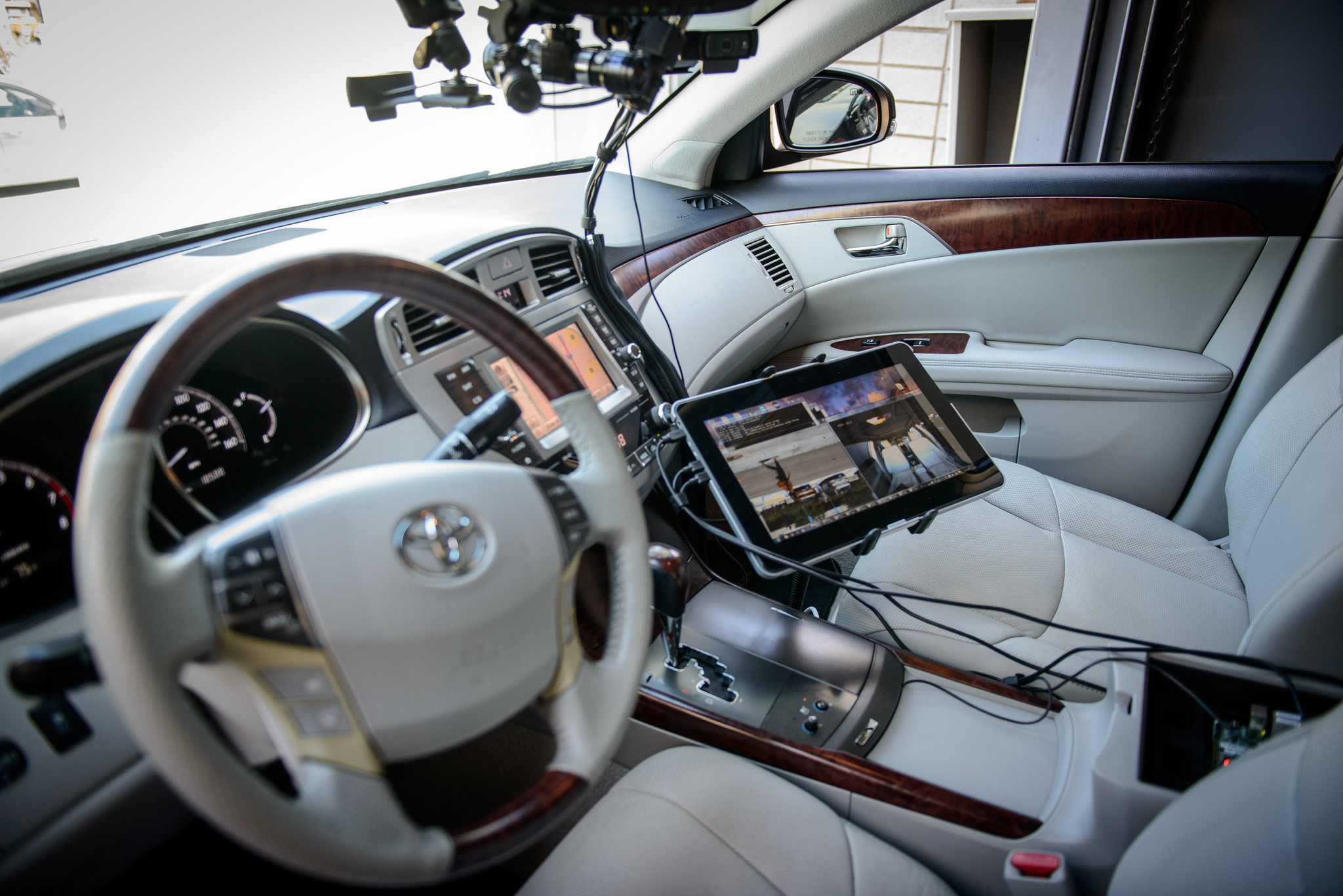UC San Diego Teams with Toyota on Autonomous, Connected Vehicle Safety Technologies

CSRC Next program earmarks funds for projects at nine institutions of higher learning
After five years of working with Toyota on automotive safety technologies, the Laboratory for Intelligent and Safe Automobiles (LISA) at the University of California San Diego is launching a new research effort with the automaker’s Collaborative Safety Research Center (CSRC).
On July 26, Toyota’s CSRC announced a sweeping set of new research programs to study the opportunities and address the challenges of emerging vehicle technologies. The 11 projects, launched in partnership with eight leading research universities in North America and the Children’s Hospital of Philadelphia, are the first launched under CSRC Next, a five-year program begun last January to support “a safer transition to the future of mobility.”
The research projects will focus on the impact of advanced technology on broader road safety trends and the interaction between humans and machines. In the latter category, CSRC is supporting efforts by UC San Diego and others to understand and strengthen the driver-vehicle relationship. Specifically, the UC San Diego researchers in LISA will undertake a project on “Human-Centered Automated Driving in the Real World: Holistic Perception and Performance Metrics,” including human experience design for advanced technology vehicles.
“Building on our prior work with Toyota, our team aims to develop a computational prediction model for transferring control back and forth between car and driver,” said LISA Director Mohan Trivedi, a professor of Electrical and Computer Engineering (ECE) at UC San Diego. “Our goal is to make sure that novel computational frameworks for integrated perception, cognition and action to realize autonomous driving will conform to the comfort, safety and preferences of the humans who interact with them, whether as drivers, passengers or pedestrians nearby.”

Added Trivedi: “CSRC support has and will benefit our team’s ability to define and overcome significant challenges in pursuing our quest for human-robot cohabitation on the road.”
CSRC Next will direct $35 million toward safety research into advanced vehicle technologies, including both autonomous and connected systems. The program will continue to support ongoing research efforts at the Toyota Research Institute (TRI) and Toyota Connected (TC) to help accelerate the development of autonomous and connected driving technologies and services.
CSRC Next will fund 11 projects at eight U.S. universities. In addition to UC San Diego, the funding will go to research teams at Virginia Tech, University of Michigan, University of Iowa, MIT, University of Wisconsin, a collaboration between Indiana University and Purdue University, as well as the Children’s Hospital of Philadelphia. The projects address challenges ranging from the integration of advanced active safety systems (e.g., automatic emergency braking) and passive systems, driver state detection (using metrics for physiology and health to improve mobility), and using analytics and big data to develop algorithms and tools to study naturalistic driving data.

“Autonomous and connected vehicle technologies are only just beginning to transform the transportation landscape,” said CSRC Director Chuck Gulash. “By working together with world-renowned institutions and making our results public, we are proud to help realize the promise of advanced mobility solutions and a safe, convenient transportation future.”
Since its creation by Toyota in 2011, CSRC has launched and completed 44 research projects with 23 partner universities, including UC San Diego, where the LISA team under professor Trivedi worked on “automated tools for naturalistic driving study data analysis for driving assessment.” Specifically, the UC San Diego team focused on developing systematic and automated tools for monitoring and analyzing driver behavior in full context, i.e., for tracking what is happening simultaneously to the driver, the vehicle in the surrounding environment.
The UC San Diego team undertook naturalistic, real-world driving studies using LISA’s automotive testbeds, including two sensor-laden automobiles provided by Toyota (pictured), which will also be used for the CSRC Next project.
In its first five years, CSRC-funded research made meaningful contributions to auto safety industrywide, including research into human factors on vehicle safety and the efficacy of active and passive safety systems, as well as the collection of driving data and development of new tools to analyze that data. All told, the joint industry-university research collaborations resulted in publication of more than 200 papers and presentations at many industry conferences.
Related Links
Laboratory for Intelligent and Safe Automobiles
Toyota Collaborative Safety Research Center
CSRC Next Press Release